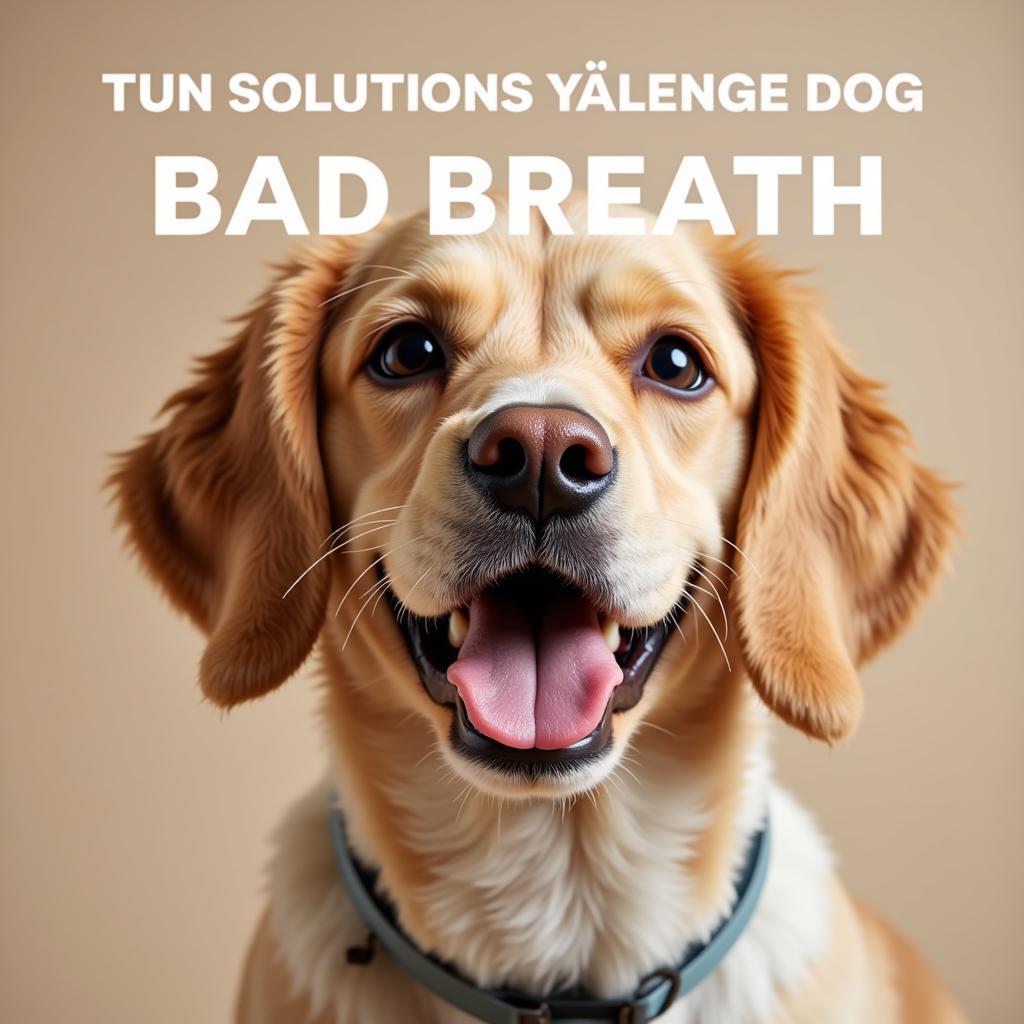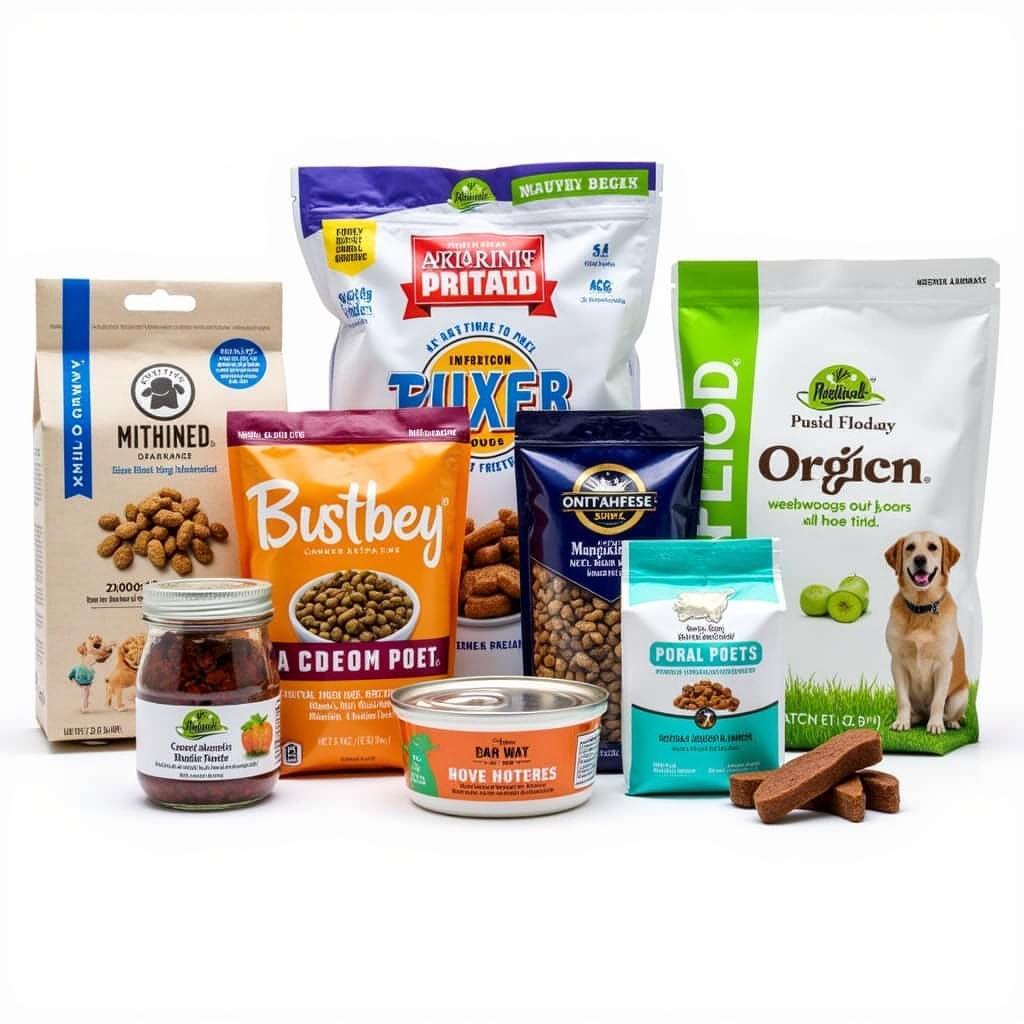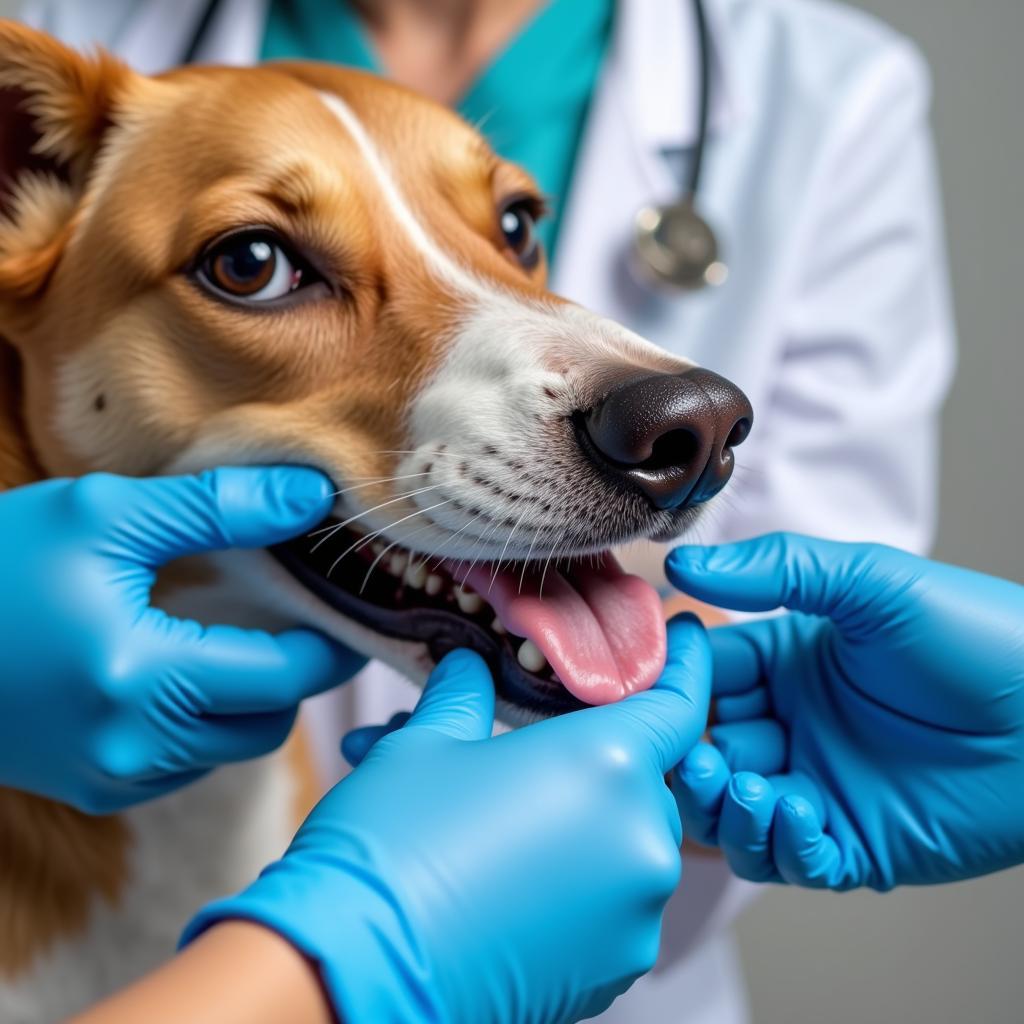Dealing with dog breath? You’re not alone! It’s a common problem that many dog owners face. While occasional bad breath is normal, persistent bad breath can be a sign of underlying health issues. The good news is that choosing the right dog food can make a world of difference in tackling those unpleasant odors. Let’s sniff out the best solutions for fresher kisses from your furry friend!
What Causes Bad Breath in Dogs?
Before we dive into the world of dog food, let’s understand what causes that not-so-fresh breath.
- Dental Issues: Just like humans, dogs can develop plaque and tartar buildup, leading to gingivitis and periodontal disease. These conditions can cause bad breath and more serious health problems if left untreated.
- Diet: What goes in must come out, right? Feeding your dog low-quality food or table scraps can contribute to bad breath.
- Medical Conditions: In some cases, bad breath might be a symptom of an underlying medical condition like kidney disease, liver disease, or diabetes.
 Dog with Bad Breath
Dog with Bad Breath
How Can Dog Food Help with Bad Breath?
Choosing the right dog food can play a crucial role in combating bad breath:
- Dental-Specific Formulas: Dog food for bad breath often includes kibble designed to promote dental hygiene. These kibbles have a larger size and specific texture that creates a scrubbing action on teeth, reducing plaque and tartar buildup.
- High-Quality Ingredients: Opting for dog food made with high-quality protein sources, digestible carbohydrates, and beneficial additives can promote overall digestive health, reducing the likelihood of bad breath.
- Probiotics and Prebiotics: Some dog foods are fortified with probiotics and prebiotics, which contribute to a healthy gut microbiome. A balanced gut flora can positively impact digestion and minimize bad breath.
Choosing the Right Dog Food for Bad Breath
With a plethora of options on the market, selecting the best dog food for your furry friend can feel overwhelming. Consider these factors:
- Age and Breed Size: Puppies, adult dogs, and senior dogs have different nutritional needs. Similarly, small breeds might benefit from smaller kibble sizes compared to large breeds.
- Ingredients: Look for food with high-quality protein sources listed as the first few ingredients. Avoid artificial colors, flavors, and preservatives, which can contribute to digestive issues.
- Dental Benefits: Choose food specifically formulated to promote dental hygiene.
- Consult Your Veterinarian: Your vet can recommend the best diet tailored to your dog’s specific needs, especially if they have any underlying medical conditions.
 Types of Dog Food for Bad Breath
Types of Dog Food for Bad Breath
Tips for Fresher Breath
Choosing the right food is a great start, but here are additional tips for maintaining fresh breath:
- Regular Brushing: Brush your dog’s teeth daily using a toothpaste specifically designed for dogs.
- Dental Chews and Toys: Provide dental chews and toys that can help scrape away plaque and massage gums.
- Regular Vet Checkups: Schedule professional dental cleanings as recommended by your vet.
Addressing Underlying Health Concerns
If your dog’s bad breath persists despite dietary changes and oral hygiene practices, consult your veterinarian to rule out any underlying medical conditions.
“Early detection and treatment of dental problems are crucial,” says Dr. Emily Carter, a veterinarian with over 15 years of experience. “Addressing these issues can significantly improve your dog’s breath and overall health.”
 Veterinarian Examining Dog's Teeth
Veterinarian Examining Dog's Teeth
Conclusion
Don’t let bad breath come between you and your furry friend. By choosing soft dog food for senior dogs with bad teeth and following these tips, you can help your dog achieve fresher breath and enjoy many happy, slobbery kisses to come! Remember to consult your veterinarian for personalized recommendations.
FAQ
1. Can I give my dog breath mints for humans?
No, human breath mints often contain ingredients that are toxic to dogs, such as xylitol.
2. How often should I brush my dog’s teeth?
Ideally, you should brush your dog’s teeth daily.
3. Is it normal for my dog’s breath to smell a little?
Occasional mild bad breath is normal, but persistent bad breath warrants a visit to the vet.
4. What are some signs of dental problems in dogs?
Bad breath, red or swollen gums, drooling, difficulty eating, and pawing at the mouth are signs of dental issues.
5. Can changing my dog’s diet really help with bad breath?
Yes, a high-quality diet formulated for dental health can significantly improve your dog’s breath.
Need More Help?
For further assistance and personalized advice, contact our team at Phone Number: 02437655121, Email: minacones@gmail.com, or visit us at 3PGH+8R9, ĐT70A, thôn Trung, Bắc Từ Liêm, Hà Nội, Việt Nam. We’re here to support you and your furry friend 24/7.